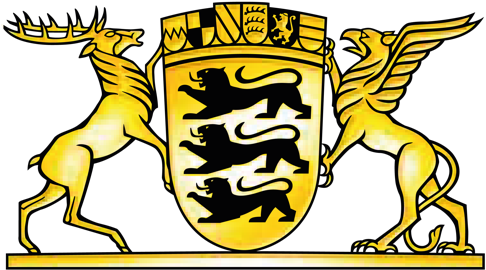Sofia, 20 years old, a student of Kyiv Polytechnic Institute (KPI)
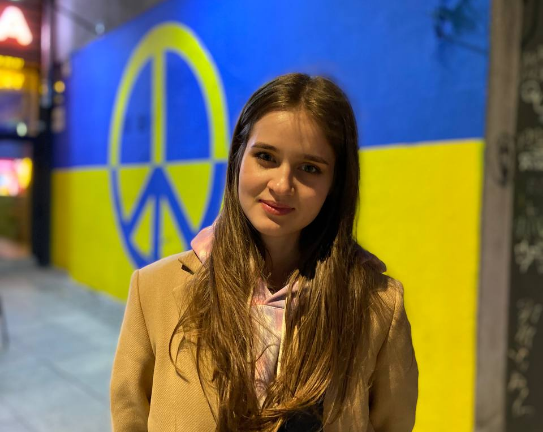

I did not want to leave Ukraine for a long time, despite the persuasion of my relatives. Due to a possible threat from Belarus (at that time I was in the Rivne region, the city of Sarny, which is 90 km from the border with Belarus), I had to change my decision.
The terrible events that took place in Bucha, Irpin, and Gostomel became a great impetus for the search for an academic mobility program. This example of inhuman, barbaric crimes forced me to leave Ukraine, which my university helped me with. It was difficult, because in the conditions of the war, the registration procedure required much more time and effort.
And yes, it was my first experience, like most students who left at that time, so I had no idea how it all worked and what documents I needed. I felt FEAR and LONELINESS…
The road to Reutlingen was incredibly difficult and exhausting, I left Warsaw for Berlin by train, continued my trip by railway to Stuttgart. I don't remember if the train was late or arrived on time, I don't remember where I had transfers, I was stressed, finding myself in the middle of a foreign country alone without internet, communication and knowledge of the language. In the evening, after arriving in Stuttgart, I turned to a volunteer to find out how to go further, he spoke English, it was much easier than if he spoke German. He told me there was no train because of the Easter weekend and I would have to wait until morning. But I had nowhere to stay and he offered an alternative option - to go by train and two buses. When I reached my final destination, I realized that I got off at a different stop. Eleven o'clock in the evening, I only had the address and nothing else. There were no people nearby, no one and nothing at all. But I was lucky enough to meet a pizza delivery guy, he explained my situation to the owner of the pizzeria, who surprisingly was still there and he took me where I needed to go.
So, it was incredibly difficult, but I got through it all, moreover, I found wonderful friends here, and life became much better. So, when I was offered to participate in the project and help students like me, the answer was obvious.
Of course, I like to spend time with my friends, we travel a lot, visit the pool and learn new things at the university. It is similar to normal life, BUT we do not forget that there is a war in Ukraine, so we support with donations and go to rallies whenever possible.
1. I wrote to the academic mobility chat bot @kpimobilitybot
2. Filled out the Google form "Request for help to partner universities"
3. After receiving an invitation from the University of Reutlingen, I began to collect the following documents
4. Having received an offer of housing in a German family, (the university was looking for a host family for me due to the lack of free rooms in the dormitories), packed my things and set off
5. I got to Poland by bus. In order to get a free ticket (help Ukraine) Warsaw - Berlin, I had to apply for a PASEL, which took several hours.
Once in Berlin, I got to Stuttgart by train, from where I had to take the S-Bahn, and then two buses. There was no internet connection, which is why I got off at the wrong stop. It was about ten o'clock in the evening, but I was lucky enough to meet the owner of the pizzeria, who kindly offered to give me a ride. That's how I ended up in my temporary home.
6. The university helped me to get insurance, register in the city, and solve administrative other issues.
7. After receiving a notification about the deadline for a residence permit, I applied and received a temporary document.
8. Issued a card at the bank by submitting such documents as:
It took about a month to receive the plastic card
The semester went by very quickly, it is a unique experience, so I will definitely take advantage of the opportunity to stay here as a student for another six months.
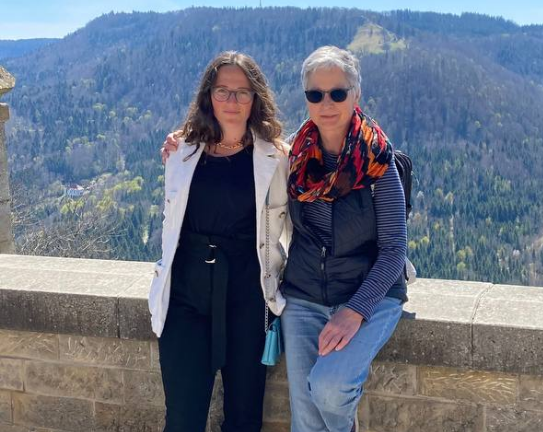
Of course, it was difficult to "fit in" after 2 months in studies, but everyone is understanding and even created separate courses for learning German for students who arrived later.
1. Where were you when the war started? Was there a plan? What were your actions?
On February 24, I woke up in my apartment in Kyiv at 5 a.m. from the explosions, I realized that the WAR had started, but I was waiting for official news, after the declaration of martial law, I packed my things and decided to leave the house. It was necessary to act quickly and there was no time to think at all.
As a family, we went to a village in the Cherkasy region, where it was relatively calm, but my older sister and I decided to go abroad due to the inability to predict the situation and economic instability in Ukraine.
On the third day after the full-scale invasion, we crossed the border with Moldova (at that time there were small queues at the checkpoints, so we were lucky) and went to Poland, after which we flew to Cyprus to visit a close friend. She was happy to host us, but after a few weeks it became clear that it was impossible to be under her care all the time and we had to make arrangements on our own, the reserves of money were also running out.
2. How did you get on the mobility program? Who helped in this?
From the very beginning, I looked for opportunities on a special channel from KPI mobility and when they published a form for mobility to a partner university, I filled it out.
After that, I waited for an answer for 2 weeks, it was explained to me that I should contact the coordinator of the University of Reutlingen and ask for an invitation. After receiving it, I went to Germany, where I drew up the following documents: wrote an application for the personal tax number (issued by the government), chose subjects at the university and registered in there (for this, an academic certificate, a certificate of studies at KPI, copies of the passport and resume are required) and applied for a scholarship from Foundation of Baden-Württemberg.
3. Why Germany? Was this a decision in advance or did it happen that way?
It really just happened, because I have never been here, and there are no friends of mine here. It was really hard at the beginning. I also said goodbye to my sister in Cyprus and arrived in the country alone.
4. How was the road to the destination?
From Cyprus (Paphos) I took a ticket to Memmingen, I got to Reutlingen by train. I was met by a host family in the city. So, everything went smoothly without any problems.
6. Do you like the fact that you went abroad and are able to continue/start your studies?
I will say 100 percent that I am satisfied, because it is possible to get to know the people, the culture of another country and the equipment in the laboratories (before that, there was distance learning at KPI almost continuously for 2 years, so you can understand me). Of course, it was difficult to "fit in" after 2 months in studies, but everyone is understanding and even created separate courses for learning German for students who arrived later.
7. Are you satisfied with the way you are treated here?
Yes, everything is fine with this aspect - the attitude of the hosts, professors, and students is normal. I also often discuss the situation in Ukraine and even arrange history lectures over dinner, and people listen attentively, which can't help but please.
1. Filled out the form from KPI academic mobility program
2. The person responsible for academic mobility contacted me within 2 weeks and shared the contacts of the coordinator at the University of Reutlingen. After contacting the coordinator, I agreed to stay with a host family and received an invitation letter.
3. Began to make an application for academic mobility and personal identification number. I got to Reutlingen (first from Cyprus by plane to Memmingen), then by regional trains (at that time they were free)). The host family picked me up from Reutlingen station and brought me to their house.
4. After a short acclimatization and familiarization with the family, I applied for documents, received an academic certificate and registered at the university (for this, a copy of the passport, CV, motivation letter, academic certificate and certificate of enrolment in KPI are required). At the same time, I took out medical insurance, registered in the city and received a bank card.
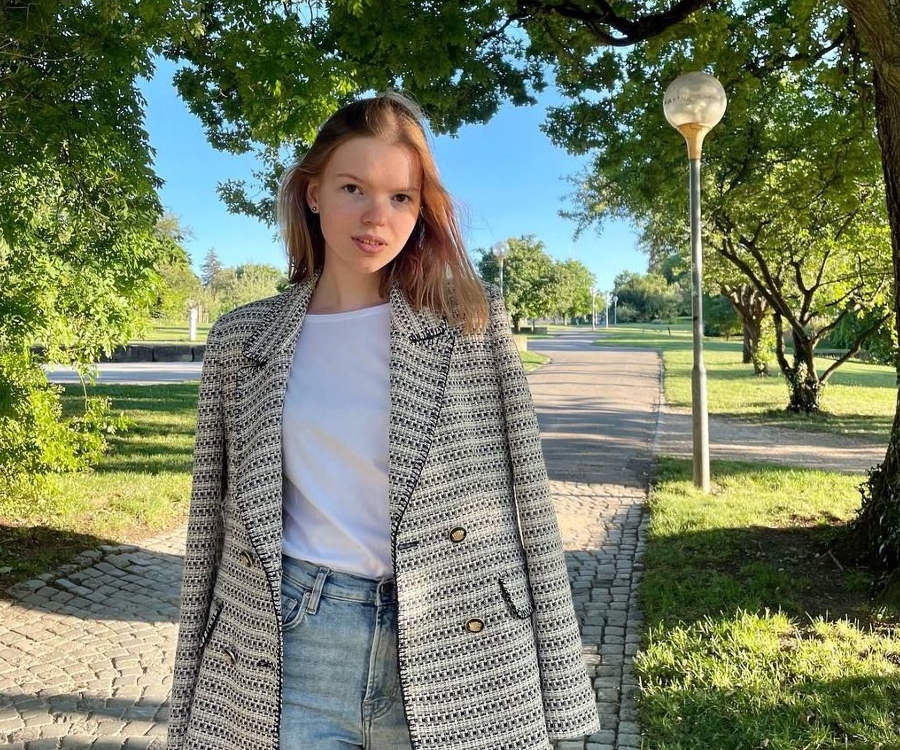
Don't be afraid to try something new, it's always interesting and informative! Take everything from life, don't stay at home all day. Better spend the time to travel, attend interesting events and meet new people.
February 24, morning, Kyiv.
Explosions are heard in the city. I did not realize that the war had begun. Me and my family decided to stay in the capital, as we saw no point in running away. We spent the night in the corridor, but the situation was getting worse every day. Food products gradually disappeared from store shelves, at the same time as the prices of these products had a completely opposite trend.
We decided to go to our friends in the village of Ploske, outside of Kyiv. However, the village was occupied in a few days afterwards. From the very mention of that period I freeze into stone. There was no food, the lights were constantly shut down...we were like in a powder keg. But that's still nothing, I remember our neighbours decided to leave and their car was met at the block post by an automatic queue on their way out. A small defenceless child died from an enemy bullet, this memory is forever etched in my mind as a reminder of the terrible crimes of Russian soldiers, which will never be justified.
Then, everything is like in a daze. We fled abroad in an evacuation train, where there were a lot of people with children and pets, all sleeping on top of each other. We fled to Germany, to the city of Nuremberg, where our friends agreed to accept us. The most difficult thing was to cross the border with Poland. We were dropped off 3 km away, and since everyone was leaving en masse, you can imagine what kind of a queue was it. Women and children stood there for several days, completely exhausted. I have been sick for several days, with a high temperature, so it was extremely hard for me.
Before we set out, we divided all the money we had into 3 equal parts, so that each of us would have an equal funds and a chance of living if the other died. I was under such stress that I made it to Nuremberg with that money in my underwear.
When I was abroad, it was strange for me that people sit calmly in cafes and drink damn coffee. After all the hell we'd been through, it was like a cold shower for me. All the time I was accompanied by thoughts about my father, who remained back at home and about the fact that the Russians destroyed my plans and aspirations for a happy life full of interesting events. I felt real rage.
The disease had reminded about itself, so I met my 18th birthday in the hospital due to inflammation of the trigeminal nerve. To be honest, I imagined my eighteenth birthday quite differently.
Time was passing, it was necessary to make a decision about further plans. There were several academic options, but none of them excited me. Of all the possible offers, I chose academic mobility program, yet even than I hesitated for a long time whether to go or not. My major is biometric engineering, so I was very scared to study chemistry in English. But I am very grateful to my father, who supported me and convinced me when it was needed. So, I am happy to be here, spend time with my friends and at the same time gain new knowledge, new experience. Everyone I met was friendly and kind to me. At the university, the administration allowed me to choose courses from different semesters and programs with a good grace, which I was very happy about. The biggest fear I had was about my host family I had to live with. Due to the lack of free places in the dormitories, I was accepted by a German family in their home. I was afraid that they would start dictating their rules and limiting my freedom, but I was wrong. They turned out to be wonderful people who helped me get use to the new environment. Therefore, I am very much grateful to them! Moreover, now I can calmly drink a coffee in a cafe, of course, not forgetting to support the Ukrainian Army, for the sake of our victory.
What advice can you give to those who are planning to study abroad?
Don't be afraid to try something new, it's always interesting and informative! Take everything from life, don't stay at home all day. Better spend the time to travel, attend interesting events and meet new people.
And the most important thing - do not build high expectations, so as not to be disappointed afterwards.
1. I wrote to the academic mobility chat bot @kpimobilitybot
2. Filled out the Google form "Request for help to partner universities"
3. After receiving an invitation from the University of Reutlingen, I began to collect the following documents
4. Having received an offer of hosting by a German family, which was found by the university due to the lack of free rooms in the dormitories, packed my things and set off
5. I travelled from Nuremberg to Stuttgart by train, and was picked up there by the host family from the Stuttgart train station
6. In Nuremberg, I already managed to make the main package of documents, the only thing that needed to be done was to inform that I am now in Reutlingen. Hosts helped with bank account opening, housing contract and other local paperwork
7. I received her Fiktionsbescheinigung in Nuremberg, and my fingerprints were collected in Reutlingen
8. Applied for a card at the bank by submitting such documents as:
It took about a month to receive the plastic card
At first, I doubted whether I should go, but now I am sure that I made the right decision. It was an unforgettable experience not only studying abroad, but also living in a German family. I plan to stay for the next semester here as well.
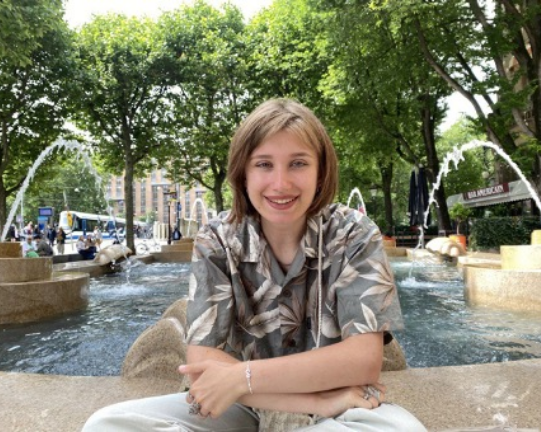
Try and enrol, take into account that this is one of the best economic faculties in Germany and you will have the opportunity to get a unique experience that will undoubtedly be needed in the future.
FEBRUARY 24 - IT WAS VERY SCARY!
A few hours before, I was living my usual life, following the news about a possible invasion of russia into the territory of Ukraine, trying to keep abreast of events, but nothing foreshadowed trouble. That evening I went to bed very late, around 2 am.
At 6 a.m., I heard explosions in my sleep, but thought it was all a dream and continued to sleep. After a few minutes, I woke up again from the second explosion, at the same second my mother burst into my room, and her words "Didn't you hear? The war has begun!" turned my life upside down. And probably not only mine, but every Ukrainian man and woman that morning. Chaos engulfed our apartment, in which we tried to gather things into a pile: documents, money and valuables. Only dad kept calm and even joked, trying to defuse the situation. We realized that it was pointless to pack things, since there was nowhere to run, so our grab-and-go cases stood idle in the corridor for several months.
I unexpectedly received an offer from the coordinator of academic mobility from my university, who helped us last semester with the paperwork for the Erasmus+ program in Lithuania, about the opportunity to study under the same program in Germany. So, I agreed. I remember that I had mixed feelings. For example, when my friends and I went to Lithuania (before the war), we were happy to be separated from our parents and to live independently as adults. Now the situation was quite the opposite: we felt guilty for leaving our parents under missile shelling, while we would be safe "fasting with coffee and croissants." However, there was nothing to do for us but to go. The first problem we encountered were the tickets, or rather the lack of them. I was lucky to have a sister working at a railway university, so she helped me get train tickets, so me and my friend l went on the road. We were the first to find out that the railway tracks on the way to Lviv were damaged by a missile strike, which is why our train was constantly changing its direction. Since a bus to Warsaw was waiting for us in Lviv, tickets for which we already had in our hands, something had to be decided, because our train was significantly delayed due to damaged tracks. We started calling and explaining our situation to the operator. Fortunately, that beautiful girl persuaded the driver to delay the departure for half an hour and it saved us. The next shock for us was crossing the border with Poland. Only 5 buses in line and 12 hours of waiting 10 of which were with minimal supplies of water and food. We were exhausted. At the Polish border, we were welcomed by volunteers with hot food and drinks, which was simply vital for us.
We arrived in Warsaw at 4 a.m. and had to get to Reutlingen somehow, but we had no idea how. There were no volunteers yet, so we communicated directly with the Poles, they helped us get by bus to the outskirts of the city, from where we continued our thorny journey to Berlin. The road was difficult. I also lost my favorite toy pillow, I hope some kid found it. We were not looking for easy ways, so instead of waiting a bit and getting from Berlin to Stuttgart by direct train, we decided to save time and chose another way with a transfer in Hanover, where we got very cold, as the transfer was quite long and the train station was cold. There were no trains from Stuttgart to Reutlingen then, because of the Easter holidays, so we had to get there by train and two buses. In summary, a total of 9 transfers between trains and buses were made. It was another challenge, considering of how many things we took with us. Sometimes, I had to pull the bags in my teeth, when the muscles of my hands did not respond.
We were offered housing by the university, we agreed because we didn't really have a choice. The people we lived with turned out to be simply incredible! They prepared our room, furnishing it with new furniture, which caused a feeling of coziness and comfort. Also, they took care of the food and it was great, since all the shops in Germany are closed on Sundays.
Studying at the university began a little chaotically. We were not able to fully select the subjects we wanted due to a lack of free slots. Also, it was difficult to make friends because we arrived in the middle of the semester when everyone had already made friends with each other. But, despite this, we had a good time, and most importantly - with benefit. Therefore, we plan to stay for the winter semester. I'm looking forward to the new semester because with the level of education I'm able to get here, it's just an incredible experience and an invaluable opportunity.
My personal advice: try and enrol, take into account that this is one of the best economic faculties in Germany and you will have the opportunity to get a unique experience that will undoubtedly be needed in the future.
1. I found out about the opportunity through the coordinator at the university, she contacted me herself
2. Filled out the Google form
3. Received confirmation and filled out the form on the website of the University of Reutlingen and submitted an application
4. Prepared documents and chose subjects for study
5. Received confirmation and invitation from the University of Reutlingen
6. Bought tickets and went
(PASEL was not issued in Germany. We were immediately given tickets for the ISE train and we left)
7. The insurance was issued on the recommendation of the coordinator
8. I did not open an account in a German bank, because I had a card from an Irish bank that works throughout Europe
9. After receiving a notification about the deadline for a residence permit, I applied and received a temporary document.
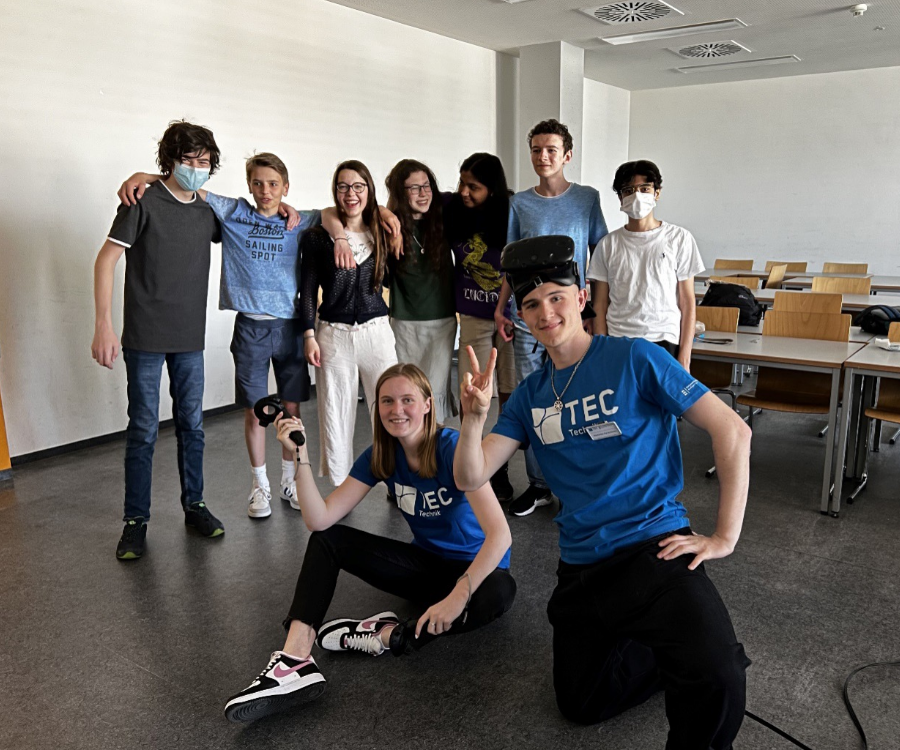
Having learned about the opportunity of participating in the academic mobility program, I decided to use the chance. Three weeks of registration and a lot of bureaucracy, but I did it!
A few days before the start of the war, it was very restless. I was at that time in the city of Slovyansk (Donetsk region) with my parents. Of course, you know what has been happening in the Donetsk region for the last 8 years, that's why friends from Kharkiv invited us to live with them, as everyone understood that war is inevitable and at one moment it can get very hot, especially in our region. But who would know that everything would start from Kharkiv? On February 24 - a full-scale war began.
After spending 2 weeks in Slovyansk, it became really hot, it was also scary to leave, but we dared. We crossed the border and ended up in Slovakia. Thirty-seven hours of horror. At the border, we were welcomed by volunteers who fed us, gave us water and put us on a bus to the Czech Republic. So, we continued our way. We spent the night in the Czech Republic in a centre for refugees, it was an ordinary ice arena where Ukrainians slept on top of each other due to the large influx of refugees.
Having learned about the opportunity of participating in the academic mobility program, I decided to use the chance. Three weeks of registration and a lot of bureaucracy, but I did it! I got to Reutlingen by train without any problems, because I already knew how to use the DB navigator and had a sim card with the Internet from Slovakia.
In Reutlingen, a family met me at the station, they who offered me a place to stay (the university arranged that). I was very pleased but worried about what would happen next. Fortunately for me, they turned out to be wonderful people who are always ready to help, which I was convinced of every day.
I came to the university, the university offered me a program, we approved a list of subjects, and I started talking to teachers. At the same time, I took care of the missing documents. The hardest part was opening a bank account. Since I was not yet eighteen, I was unable to open the account required to receive a scholarship. Nevertheless, the university understood the situation and agreed to pay me in cash for several months. Student Nina, a very nice girl who was assigned to me from the university as a mentor, helped me with bureaucratic issues. In general, everyone I met was very warm and understanding. Also, the teachers paid more attention because we arrived later.
In addition to studying, I am actively involved in sports. I keep a close eye on my diet, regime, and run. It helps me stay in shape. I really like that every Wednesday we gather with Ukrainian students and play badminton.
I do not plan to return to Ukraine until the end of the war. I will continue to look for the chance to study abroad because I consider this opportunity invaluable, and the experience invaluable.
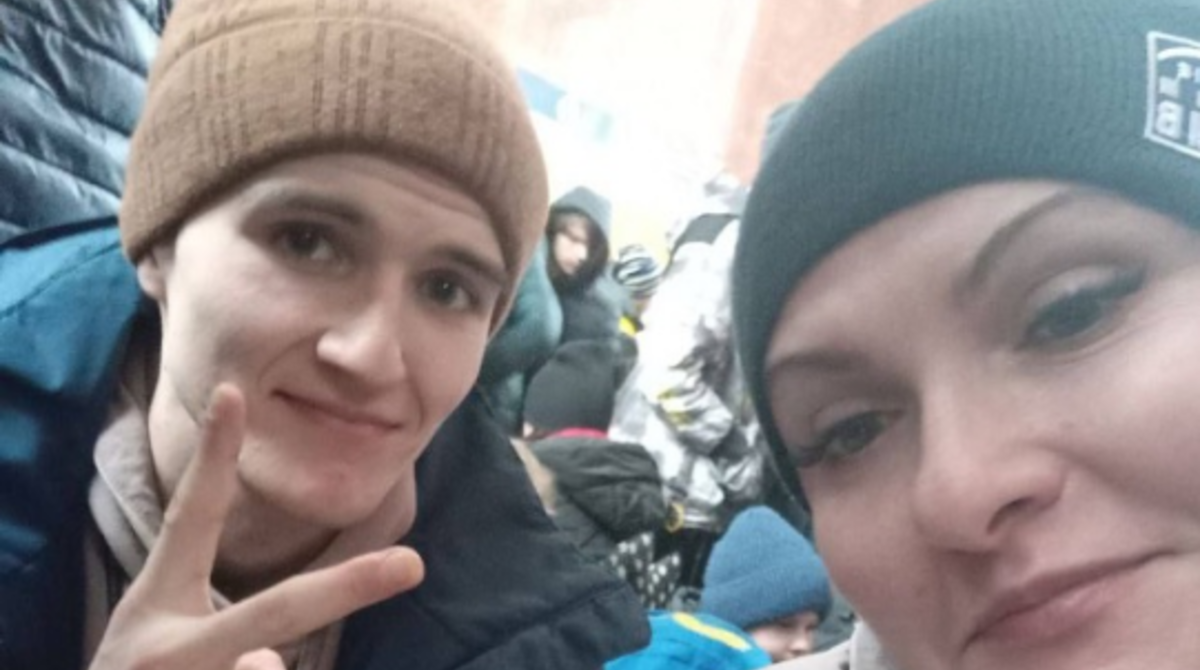
1. Filled out the Google form "Request for help to partner universities"
2. After waiting about a month, I received an invitation to the University of Reutlingen
3. Submitted the following documents to this university online:
4. The university found me housing very quickly (in a host family)
5. After I was given accommodation, I packed my things and went to Reutlingen.
I set out from the city of Linnich (near Cologne). I was already there for some time (+- a month. With family friends).
From Ukraine, I travelled with my mother through Slovakia and Austria to Germany. First, to the border on an evacuation train from Kramatorsk to Uzhhorod. On the other side of the border, a Red Cross camp was waiting for us, where we were fed and put on a bus to another camp, where we could spend the night. Then they took us to the nearest train station, from where my mother and I were already traveling by ourselves.
6. The university helped with solving all bureaucratic issues (insurance, residence permit, bank card, scholarship registration) and very quickly allowed me to join the educational process.
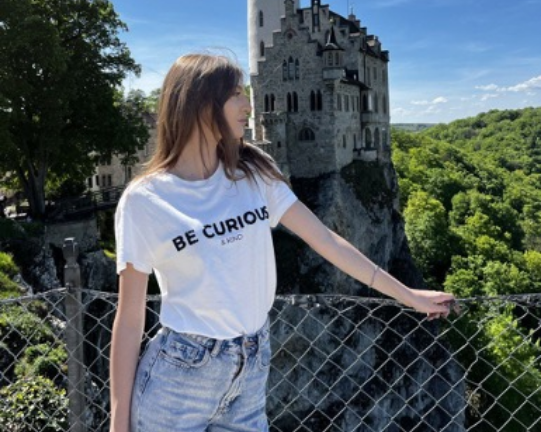
I want to say that in such a difficult time for our country and for all Ukrainians, it is very nice to feel the support of our foreign friends who make a great contribution to the future of our country and people.
My dream always was to go somewhere as an exchange student to meet new people and gain useful experience and valuable knowledge.
Already at the beginning of the third year, I realized that I would have to work hard to be successful, so I decided to take my fate into my own hands. I became interested in the mobility program at my university and I found one. I was supposed to go to study at the Odesa Polytechnic National University in April 2022, but the war decided everything for me.
February 24… it was like a terrible dream. I thought I would wake up soon... But it was a harsh reality. My family and I left to Germany. A month passed, and I realized that I had to find an occupation for myself. Firstly, to distract myself from negative thoughts from the news from Ukraine, and secondly, I could not sit idly by and waste my time. I already understood how the student exchange program works, so I applied to the mobility department and was offered to participate in the Erasmus+ program at the University of Reutlingen. I agreed to this offer, despite the fact that my family and I settled in the north of Germany, and the university is in the south. But being away from my parents didn’t scare me because I couldn't afford to lose my best college years. But even in Germany, I could not even imagine such a thing.
Due to the fact that active hostilities are taking place on the territory of Ukraine and some documents are simply impossible to obtain, KPI partner universities have significantly simplified the enrolment procedure for exchange students. The winter semester here starts in March, but we were allowed to join at the end of April, which was an exception to the rule. Also, we were given the opportunity to choose any number of subjects from different programs. At the university, I had to study "International Business", despite the fact that my program is "International Economy" at KPI. Since we started studying at the end of the semester, some teachers allowed us not to take the exams. We were also offered to stay for the next semester, which I was very happy about. I was impressed by the fact that every classroom at the University of Reutlingen is equipped with innovative equipment.
Also, I really liked the teaching system. The combination of lectures and practices in one class and a small number of students in the group provides an opportunity to fully immerse yourself in the world of knowledge. It was very nice that the university organized German language courses for Ukrainians, which greatly eased the situation with communication here.
I want to say that in such a difficult time for our country and for all Ukrainians, it is very nice to feel the support of our foreign friends who make a great contribution to the future of our country and people. I want to thank you for the opportunity that foreign universities provide to Ukrainian youth to get an education and realize their potential, regardless of the obstacles created by the war.
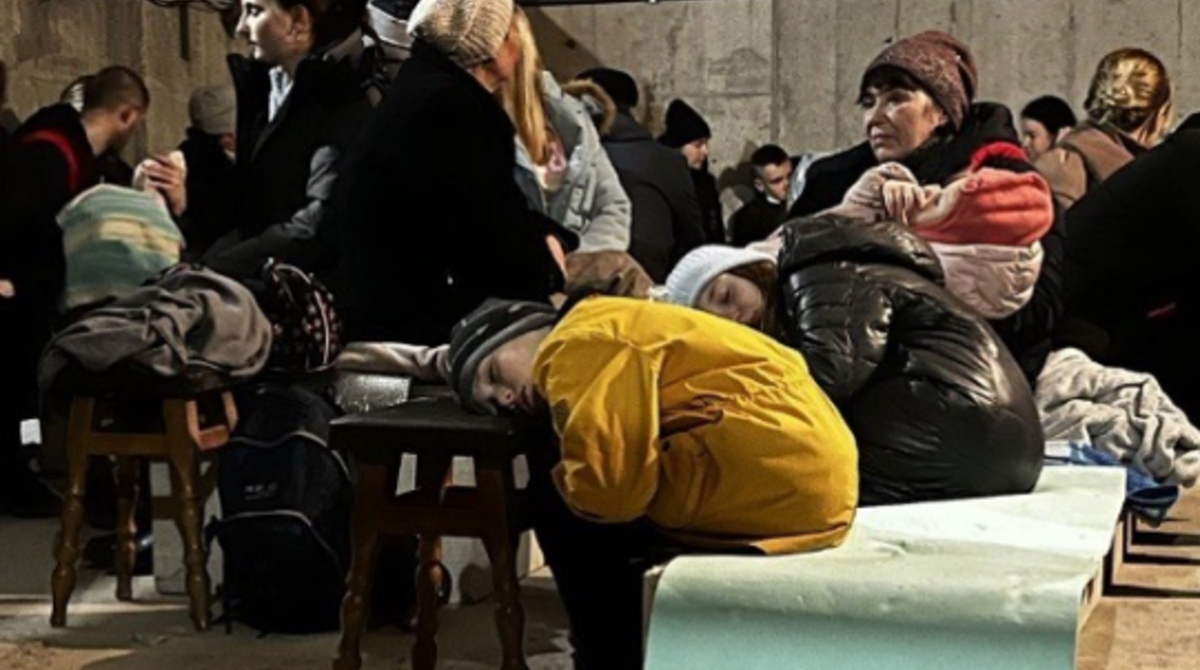
1. I wrote to the academic mobility chat bot @kpimobilitybot
2. Filled out the Google form "Request for help to partner universities"
3. After receiving an invitation from the University of Reutlingen, I began to collect the following documents
4. Having received an offer of hosting by a German family, which was found by the university due to the lack of free rooms in the dormitories, packed my things and set off. My host family does not live in the city where the university is located, but 25 kilometres away, so the journey for the couple involved two buses and two trains.
5. At the time of admission to the university, I was already in Germany, I needed to take several trains to get to them.
6. All the documents such as registration at the place of residence, bank account, fingerprints to issue a temporary residence, I did it myself at the place where my host family lives, the university did not provide any help, because this is not the city where the university is located.
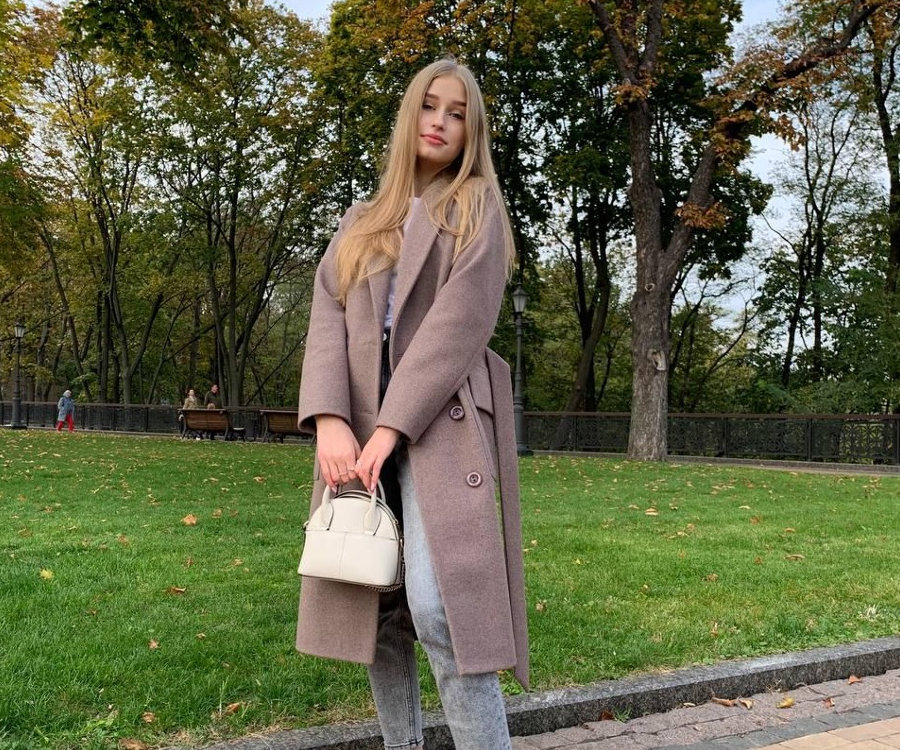
I am indescribably glad to be here, to live a full life, and to gain valuable experience and knowledge, as well as to study foreign languages. I'm happy that I don't have to run for cover during an air alert and hide from missiles.
1. Where were you when the war started? Was there a plan? What were the follow-up actions?
I woke up in the morning, at home, in Kyiv. Like everyone else, there was a bustle in our apartment that morning. There was no action plan as such. My dad is a military man, so my mom and I trusted him completely and all decisions from now on depended on him. I think it was very difficult for him, because from that day on, the responsibility for our lives fell squarely on his strong male shoulders.
It was dangerous to stay in Kyiv, and scary, to be honest, so we went to the Bila Tserkva, to my father's brother. We stayed there for about two weeks until the rocket landed in our yard. What can I say here ... in moments like these, you start appreciating life like never before and are glad that you survived, that this rocket fell 10 meters away.
It hurts when the usual life is destroyed.
I was very scared; I was afraid that there will be no place for me to stay. But the coordinator from the university put herself in my situation, gave me her personal phone number so that I could be in constant contact, and also assured me that I would definitely not be left on the street, at that time I was living in a hotel in Stuttgart. Then it happened to be Easter week, the whole weekend, therefore, under such conditions, it was even more difficult to find a host family. But, luckily for me, everything turned out as it should, which is why I was very happy.
2. How did you get on the mobility program? Who helped in this?
Everything was quite simple. In the telegram channel of the university, I saw a message that it is possible to apply and go to study abroad. So, without delay, I filled out the Google form, after which I received a call and was offered to participate in the mobility program and go to Reutlingen.
3. Why Germany? Was this a decision in advance or did it happen that way?
I wanted to go to Germany because I have many friends here. Who has been studying or working for a long time, who left because of the war. So, staying here was perfect for me. I did not feel alone, and in general, thanks to my friends, my stay here was filled with positive experience.
4. How was the road to the destination?
I calmly packed my things and went by bus from the Ternopil region straight to Stuttgart. The journey lasted 40 hours. Due to housing problems, I had to live in a hotel in Stuttgart for a week. I reached Reutlingen by train and two buses.
5. Are you satisfied that you went abroad and are able to continue/start your studies?
I am indescribably glad to be here, to live a full life, and to gain valuable experience and knowledge, as well as to study foreign languages. I'm happy that I don't have to run for cover during an air alert and hide from missiles.
6. Are you satisfied with the way you are treated here?
I think the situation I will describe now will say everything for me.
A week before my arrival, I wrote to the coordinator that I had nowhere to live and needed a place to live. But at that time there were no options, they simply did not have time to find a host family.
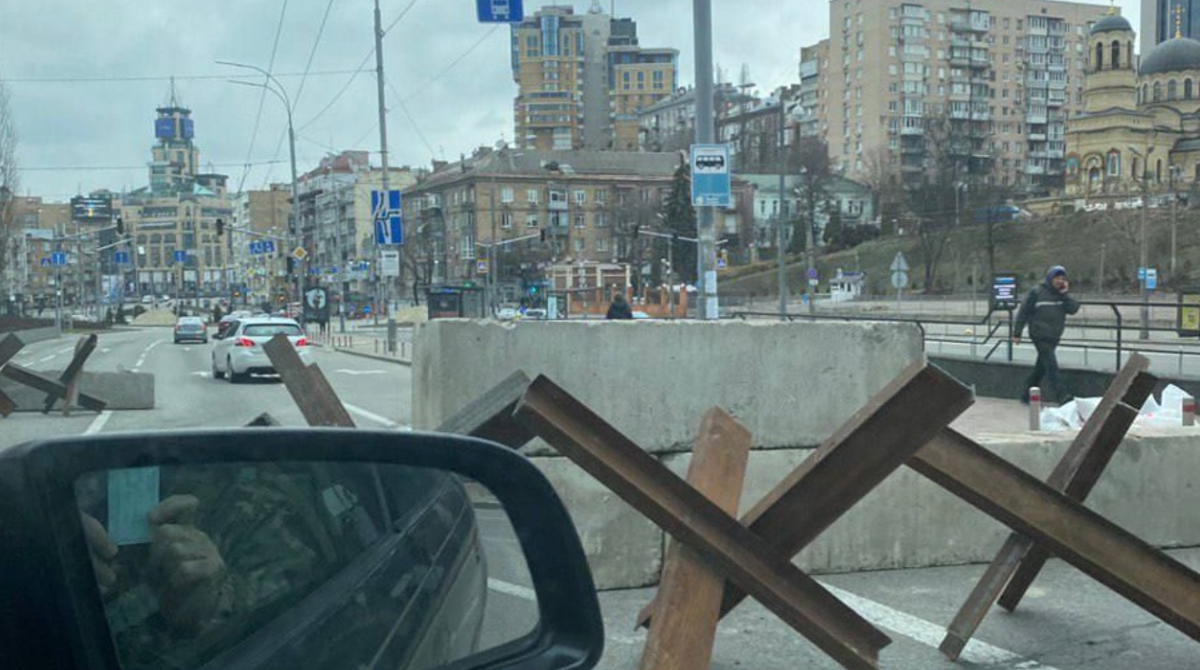
1. I saw a message in the Telegram channel that you can participate in the academic mobility program
2. I filled out the Google form "Request for help to partner universities"
3. After receiving an invitation from the University of Reutlingen, I began to collect the following documents
4. I got from Ternopil to Stuttgart by bus, stayed for a week in a hotel in Stuttgart (because at that time I had nowhere to live in Reutlingen, this issue was just being resolved), went from Stuttgart to Reutlingen by train and two buses
6. The university helped me get insurance, register in the city and solve other issues
7. After receiving a notification about the deadline for a residence permit, I applied and received a temporary document
8. Issued a card at the bank by submitting such documents as:
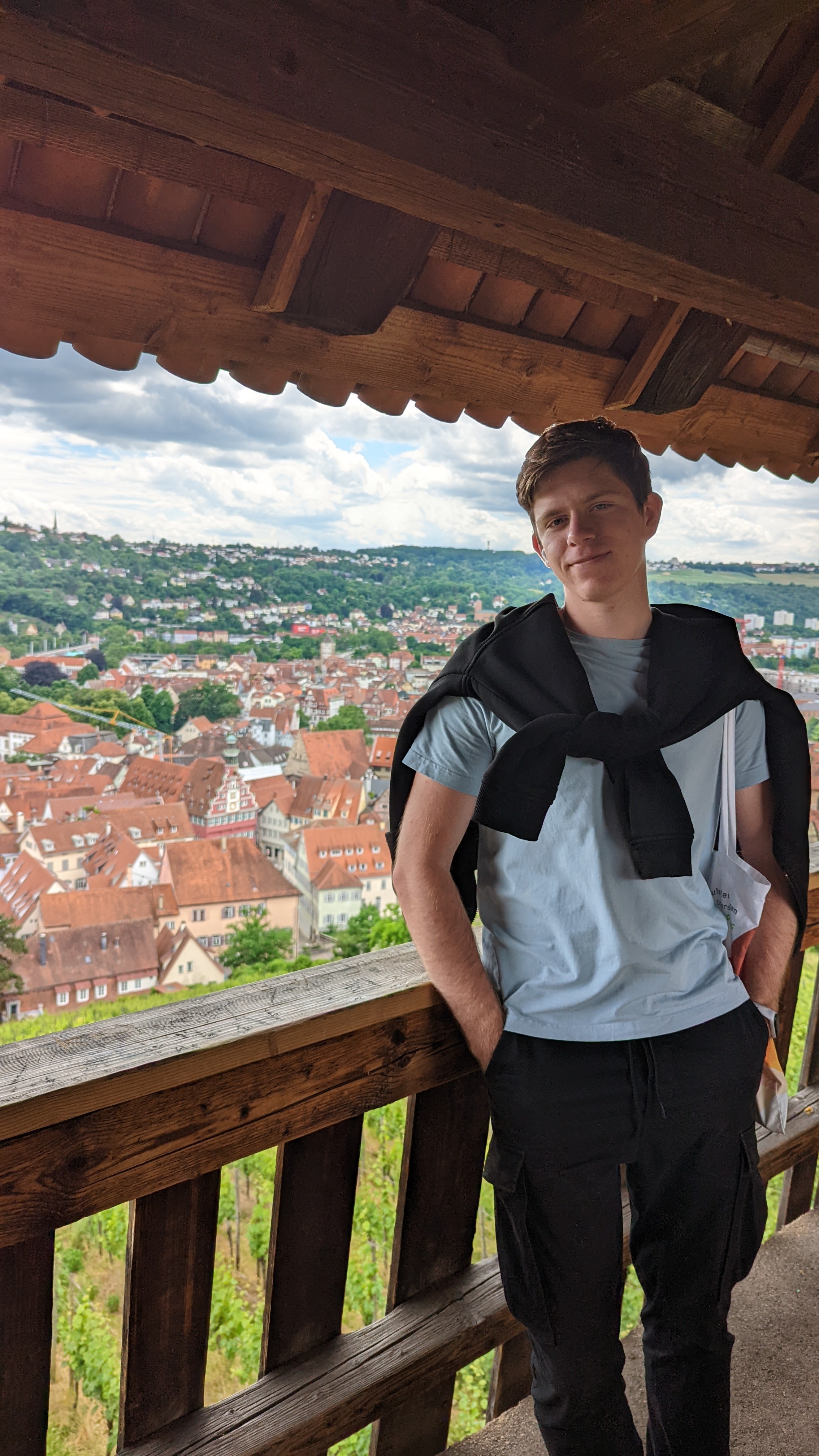
The most important thing I understood is that the experience of studying in foreign universities is extremely important, because it helps you to expand your horizons and see different approaches to research activities.
It's five in the morning on February 24th...my sleep was interrupted by an explosion. I was scrolling through the news feed to check guesses…
After realizing that the war had begun, I did not want to wake up my parents and my younger sister, to destroy this peace, but I understood that life would not be the same as before and I had to act.
The first siren in the Dnipro sounded a few days after the start of the war, due to a malfunctioning notification system, and that's when our family temporarily moved to the basement of the university, and lived there for a week, due to constant threats of rocket attacks.
I dreamed about the opportunity to study abroad for a long time, but I did not imagine that it would happen so quickly and under such circumstances. Moreover, the decision had had to be made from the bomb shelter.
Together with my mother and sister, we left on an evacuation train to Lviv, where we were separated. They left for Germany, but there was a question about me, because there was no exact information about men going abroad, and I was of legal age.
In short, I was able to cross the border only the third time. I had to live in Lviv for a month, trying to get the documents needed for departure. Therefore, later the bureaucracy in Germany did not seem so scary to me. But the problems with obtaining the necessary documents were not only due to bureaucracy, but also due to long queues at the military commissariat of those who want to protect our native land from invaders. I had to leave because I had to take care of my mother and younger sister, so leaving as a student was the only option for me. Also, I knew that studying here is an invaluable opportunity to gain experience and gain new knowledge. I was excited about my first group project where we built a real robot by ourselves. I was directly engaged in mechanics, and also made a voice recognition system. So, I was delighted with the project itself and the fact that there was all the necessary equipment and access to technology. In the team, we communicated with each other and shared the results. Which pretty well piqued my interest even more.
I will say briefly about my plans for the future, I plan to stay and study here as long as there is an opportunity in order to further use this knowledge in Ukraine, for its reconstruction and economic recovery.
The most important thing I understood is that the experience of studying in foreign universities is extremely important, because it helps you to expand your horizons and see different approaches to research activities. Also, I was most impressed by the teachers' attitude towards the students. Teachers are open and friendly, ready to involve in cool innovative projects, if only there was a desire! Therefore, do not delay and use all the opportunities that fate offers you!
My actions were as follows:
1. Submitted an application for admission to the University of Reutlingen, to its international department.
2. After passing the selection, he began to collect the following documents
- academic certificate from NTU
- a certificate of enrollment at NTU
- CV
- a copy of the passport, covid certificate, certificate confirming knowledge of the language
3. Also, in parallel, it was necessary to prepare documents related to the strictly educational process:
- Individual plan for NTU "DP"
- Learning agreement between the University of Reutlingen and NTU "DP"
4. Due to the fact that martial law was introduced in the country, and I was of legal age, additional documents had to be made at the military office, the result of which was one document - Postponement from the draft on the basis of studying at a foreign university.
5. After crossing the border, I already had somewhere to go - to my family, who had already lived in Reutlingen for about a month.
6. I drove to Reutlingen with friends from Mariupol whom I met while living in Lviv. I am very grateful to them for helping me so much at that moment.
7. The university helped me to get insurance, register in the city and solve other issues.
8. After receiving a notification about the deadline for a residence permit, I submitted an application and received a temporary document.
9. Issued a card at the bank by submitting such documents as:
- a copy of the passport
- registration in the city
- residence permit (temporary document)
- personal identification number
It took about a month to receive the plastic card.
The semester went by very quickly, it is a unique experience, so I will definitely take the opportunity to stay here as a student for another six months.
"Nineteen years of my life are gone...because my city, a completely destroyed city, was my life."
How did it all start?
On February 24, I heard the explosions and immediately called my parents, who were in Mariupol at the time. No one expected it to be so serious. The blockade began. My parents could not leave.
Dad helped to mothball the Ilyich plant (Mariupol Iron and Steel Works, the largest enterprise in the Azov region) so that it could be restarted later. My parents were under fire, and explosions were heard when they called on the phone.
Later, they went to a village (40 km from Mariupol) where they hoped to wait it out. In that house they had everything they needed for life... but the Russian army came. The occupiers gathered all the Ukrainian men and asked them to sign documents for voluntary service in the DPR army, after which they immediately decided to leave. They had to go through 28 Russian checkpoints. It was very difficult, and the only thing that saved them was that it was raining heavily and the Russians did not check the cars much. At that time, my father was thinking that he was responsible not only for his life, but also for the lives of 3 women who were in the car with him and, in case of emergency, would not be able to do anything. Fighter jets were flying overhead, bombs were exploding very close, the blood was running cold in my veins.
What left the biggest imprint on your memory?
They shot 14 Ukrainian soldiers on the highway, who were under the sun for several weeks and no one could take them away, but when the situation improved a bit, the fighting stopped, my cousin's grandfather and other men took the bodies and buried them properly, as it should be.
How did you contact your parents/relatives?
At that time, there was only one mobile operator in the DPR, Phoenix. There was almost no connection. My mom would call her friend from Donetsk who used the same operator, my friend would call me from another phone, turn on the speakerphone on both phones, and that way I could hear my family.
I couldn't contact them whenever I wanted to, as their connection was only on a hill, 20 kilometers from the village. There were periods when they couldn't call and I was in constant stress because I didn't understand what was happening there and whether they were alive at all.
When my parents left Mariupol, the next day a cluster shell hit our house and the nine-story building burned to the ground. I saw my apartment burning, and my neighbors sent me this video. They were sitting in the house across the street, with the windows and doors smashed, and only one candle burning. You remember how it all looked in peacetime, and when you see it now, you just can't believe it.
I'm grateful to fate that my family is alive, that's the main thing!
How did you leave Ukraine?
Katia contacted me; we weren't close, but the war was uniting everyone at the time. She offered to go to Germany, and I agreed without hesitation. I realized how much I could benefit our country by gaining knowledge that would be extremely useful in rebuilding Ukraine after the war.
It took us 2 days to get to the border because of the terrible traffic jams near Bila Tserkva. There was no gasoline, it was only 70 kilometers away, and by some miracle we reached a gas station and replenished our fuel supplies. We stopped for the night in Lviv and continued our journey. We knew that people stood at the border for 2-3 days, so we decided to park the car 10 km away and just walk. Accidentally getting into the priority line (for the elderly and children), we crossed the border very quickly.
My mother shared the contact of her classmate who had lived in Poland for a long time and we contacted her, she picked us up from the border and brought us to her home in Warsaw. I was surprised that people who hadn't talked to each other for decades were willing to do anything to help your child. I admire the openness, sincerity and friendliness of our people.
From Warsaw, we went to my father's friend Katia, who had long ago moved to Germany, to a village near Hechingen, and lived with her for six months.
Was it difficult to assimilate?
In Ukraine, I studied at Taras Shevchenko University, Faculty of International Relations. It was very easy for me to enter.
An interesting fact is that when the first weapons arrived in Ukraine, it was our students who were involved in translations and establishing communications.
I'm currently on a sabbatical and plan to withdraw, because it's impossible to study at two universities of this level in parallel.
What documents did you submit for admission?
⁃ certified translation of school transcripts
⁃ certified translation of the transcript of grades from the university
⁃ language certificate (duolingo was not accepted, so I took IELTS)
I was lucky, because I had previously applied for an exchange program in the United States and therefore, all my documents had already been translated and certified. My documents were used as an example for the other girls who applied.
In order to enter a university in Germany, you needed one completed year of study at a Ukrainian university, which we did not have. We got out of the situation by providing a certificate stating that we would definitely finish the first year and an extract of grades for the first semester.
How did you find accommodation?
We looked for housing on our own, on various platforms, and also contacted the university directly, and they helped us.
Do you receive funding during your studies?
We didn't know about the possibility of receiving a scholarship from the university, so we registered for Baf (a government loan, part of which must be repaid after a certain period of time).
Do you like studying here?
I like it very much, and the difference with the Ukrainian university is enormous. In Ukraine, the subjects were more general, but here, we go deeper and look at every aspect of business in detail. It's incredibly interesting, I'm thrilled. Also, abroad, it is important to acquire practical knowledge that you will use in the future, which is an advantage.
What are your plans for the future?
Frankly speaking, it makes no sense for me to return to Ukraine in the next 10 years. The country is in a state of stagnation and economic instability, so I would like to stay abroad. In the future, I have plans to open a business in Ukraine and pay taxes and help.
There are already many projects to restore Mariupol, and my parents and I are trying to take part in them, and we dream that we will soon come to our Azov Sea.
Do you have any advice for future students?
Remember the work of Tigrolova "Happiness helps the brave"
If you know that you can do something for your country, you should use this opportunity.
Don't be afraid to take risks, because changing your life is always for the better!
The hotline is available Monday to Thursday from 10:00 to 12:00 and 14:00 to 16:00 CET.
+4915234669735
Email: info@ua-study.de
